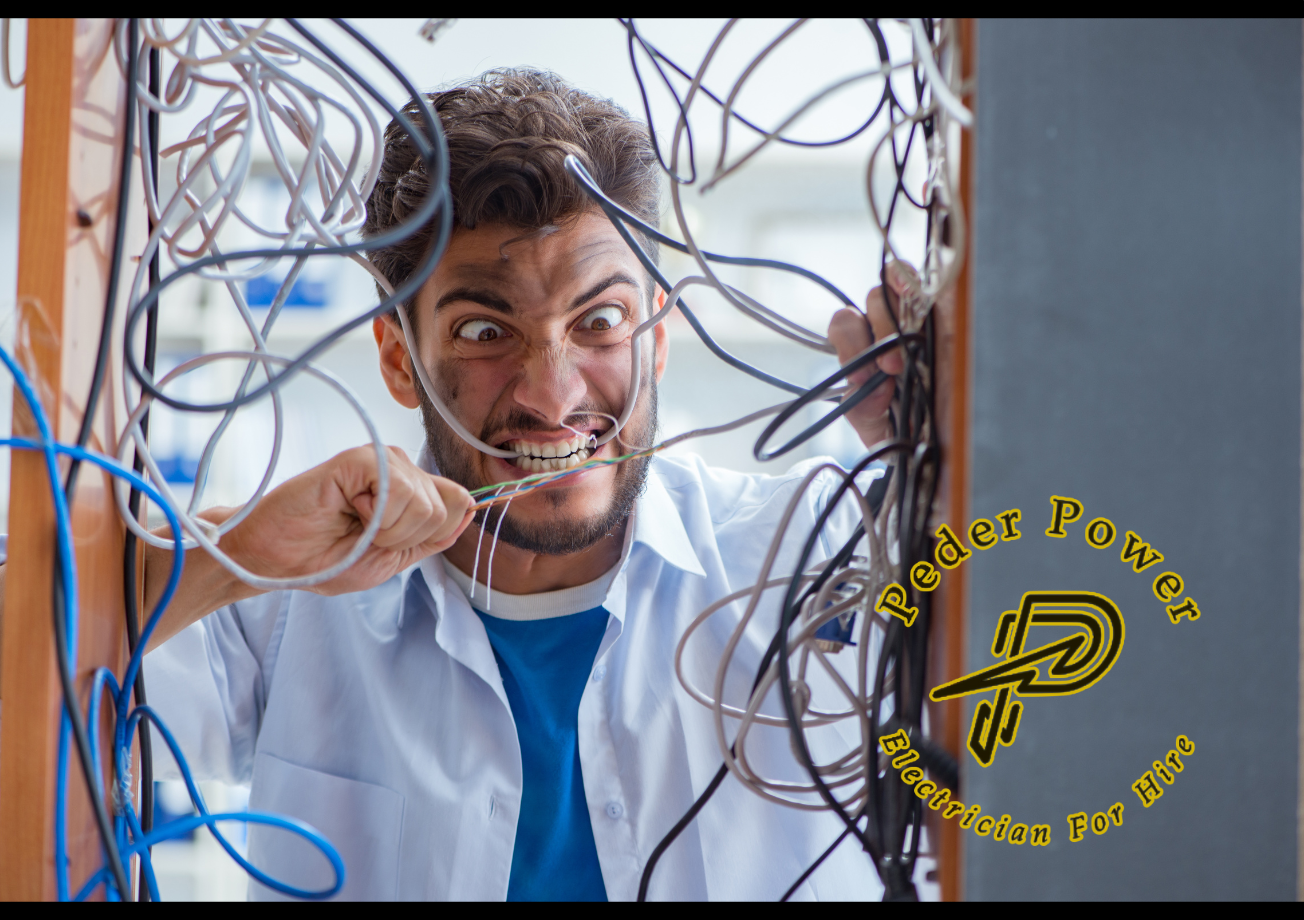
Why You Should Never DIY Electrical Repairs After Water Damage
When your home suffers from water damage — whether due to a storm, burst pipe, or basement flood — your first instinct might be to fix things fast. But while patching drywall or drying floors may be safe to DIY, handling electrical repairs after water exposure is not.
Water and electricity form a hazardous combination. Attempting electrical work without proper training, tools, and inspections can lead to serious consequences — including shock, fire, or long-term system damage.
Why It’s So Dangerous
1. Water Turns Electrical Systems Into Hazards
Even small amounts of moisture can cause:
- Short circuits
- Live wire exposure
- Electric shock
- Fire risks
Moisture lingers in outlets, switches, or panel boxes long after surfaces appear dry. Energizing these systems without inspection is extremely dangerous.
2. Damage Is Often Hidden
Water can soak insulation, drywall, and structural cavities — and with it, hidden wiring.
After exposure, electrical components may:
- Corrode internally
- Lose grounding integrity
- Create unpredictable arcing
These issues aren’t visible to the naked eye and can’t be fixed with surface-level repairs.
Why You Shouldn’t DIY It
3. You May Make the Problem Worse
Without proper testing equipment and knowledge of electrical codes, DIY work can cause:
- Unsafe reinstallation
- Power surges or system failures
- Fire hazards that develop over time
A small mistake can become a costly and dangerous issue later on.
4. It Could Void Insurance Coverage
Most homeowners’ insurance policies require that licensed professionals complete electrical work after a water damage claim. DIY repairs may:
- Jeopardize your claim
- Delay payout
- Create legal liability
When in doubt, always defer to certified contractors.
The Right Way to Handle It
5. Start With Water Damage Restoration
Before touching electrical systems, the property should be:
- Fully dried and dehumidified
- Cleared of wet insulation or drywall
- Inspected for hidden moisture
Professional water damage restoration services can prevent secondary damage and prepare the space for safe electrical work.
6. Call a Licensed Electrician for Inspection
A qualified electrician can:
- Test the panel, outlets, and circuits
- Identify compromised wires or components
- Restore power only when it’s safe to do so
Trying to troubleshoot without proper tools or expertise puts everyone at risk.
Electrical systems are not something to take lightly — especially after water intrusion. If your home has experienced any level of flooding or leaks, resist the urge to fix the issue yourself.
A professional approach ensures your home is safe, compliant with code, and protected from future electrical failure.




